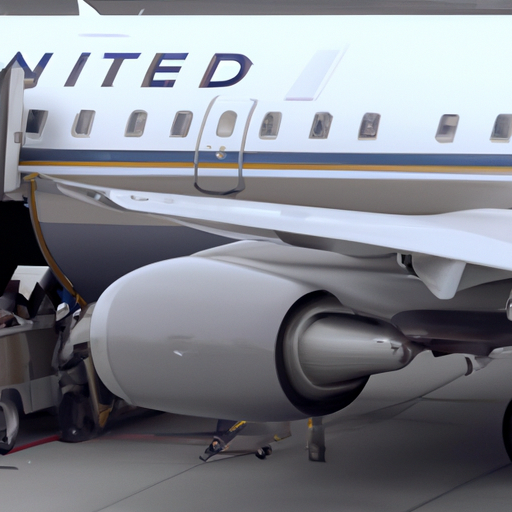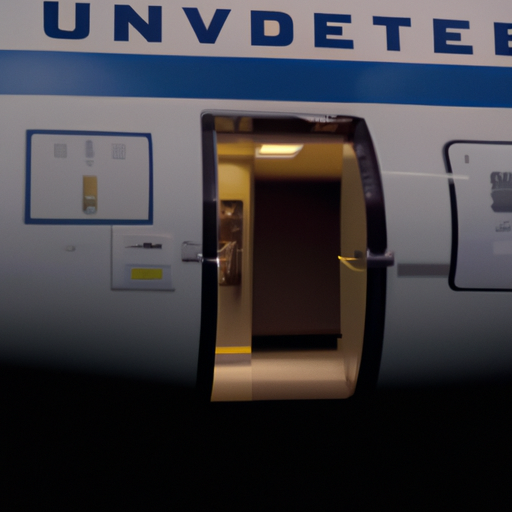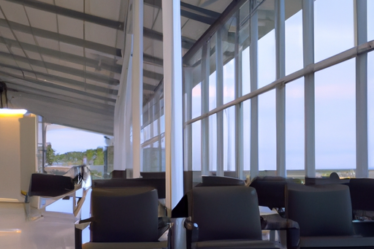
Understanding United Airlines’ Policy on Early Aircraft Door Closure
United Airlines Denies Boarding Due to Early Aircraft Door Closure
Have you ever arrived at the airport, excited for your upcoming flight, only to be denied boarding because the aircraft doors closed earlier than expected? It can be a frustrating experience, leaving you feeling confused and wondering why this happened. In this article, we will help you understand United Airlines’ policy on early aircraft door closure and shed some light on why this practice is in place.
First and foremost, it’s important to understand that United Airlines, like many other airlines, has a strict schedule to adhere to. This schedule ensures that flights depart and arrive on time, minimizing delays and inconveniences for passengers. Early aircraft door closure is one of the measures taken by the airline to maintain this schedule.
When an aircraft door closes earlier than the scheduled departure time, it is usually due to operational reasons. These reasons can range from ensuring that the flight is ready for departure to accommodating last-minute changes in the flight plan. By closing the doors early, United Airlines can ensure that the aircraft is ready to push back from the gate and take off as soon as possible.
While early aircraft door closure may seem inconvenient for passengers who arrive at the gate just a few minutes late, it is essential for maintaining the airline’s schedule. Allowing late passengers to board after the doors have closed would result in delays not only for that particular flight but also for subsequent flights that rely on the aircraft’s timely departure.
It’s worth noting that United Airlines does make efforts to accommodate passengers who arrive at the gate slightly late. If you find yourself in this situation, it is recommended to approach a gate agent and explain your circumstances. They will assess the situation and determine if it is possible to reopen the aircraft doors for you. However, it’s important to understand that this is not always feasible, especially if doing so would cause significant delays.
To avoid being denied boarding due to early aircraft door closure, it is crucial to arrive at the gate well before the scheduled departure time. Airlines typically recommend arriving at least 30 minutes before domestic flights and 60 minutes before international flights. This allows sufficient time for check-in, security procedures, and any unforeseen delays that may occur.
In addition to arriving early, it is also advisable to stay updated on your flight’s status. Airlines provide real-time information about flight delays and gate changes through their websites, mobile apps, and airport display screens. By staying informed, you can adjust your plans accordingly and ensure that you arrive at the gate on time.
In conclusion, United Airlines’ policy on early aircraft door closure is in place to maintain the airline’s schedule and minimize delays. While it may be frustrating to be denied boarding due to this practice, it is essential for the smooth operation of flights. To avoid being in this situation, make sure to arrive at the gate well before the scheduled departure time and stay informed about any changes to your flight. By doing so, you can ensure a stress-free travel experience with United Airlines.
The Impact of United Airlines’ Denial of Boarding Due to Early Aircraft Door Closure

United Airlines Denies Boarding Due to Early Aircraft Door Closure
Have you ever arrived at the airport, excited for your upcoming trip, only to be denied boarding by the airline? It can be a frustrating and disappointing experience, especially when you have followed all the necessary procedures and arrived on time. Recently, United Airlines made headlines when they denied boarding to several passengers due to an early aircraft door closure. This incident has raised concerns about the impact of such actions on passengers and the airline’s reputation.
When passengers arrive at the airport, they expect to be able to board their flight as scheduled. However, in this particular case, United Airlines closed the aircraft door earlier than the scheduled departure time, leaving some passengers stranded at the gate. This decision was made to ensure an on-time departure, but it left many passengers feeling frustrated and inconvenienced.
One of the main concerns raised by this incident is the impact it has on passengers. Being denied boarding can disrupt travel plans, causing passengers to miss important meetings, events, or even connecting flights. It can also lead to additional expenses, such as hotel accommodations or rebooking fees. Furthermore, the emotional toll of being denied boarding can be significant, as passengers may feel a sense of helplessness and frustration.
In addition to the immediate impact on passengers, incidents like these can also have long-term consequences for an airline’s reputation. In today’s digital age, news spreads quickly, and negative experiences can be shared with a wide audience. Social media platforms are filled with stories of disgruntled passengers, and these stories can influence others’ decisions when choosing an airline. United Airlines, in particular, has faced several public relations crises in recent years, and this incident only adds to the negative perception some people may have of the airline.
To address these concerns, United Airlines should consider implementing measures to prevent similar incidents from occurring in the future. One possible solution is to improve communication between ground staff and the flight crew. By ensuring that all parties are aware of the boarding process and the scheduled departure time, the risk of early aircraft door closure can be minimized. Additionally, airlines should have clear policies in place for handling situations where passengers are denied boarding due to early door closure. This could include providing compensation or alternative travel arrangements to affected passengers.
Passengers can also take steps to protect themselves from being denied boarding. It is important to arrive at the airport well in advance of the scheduled departure time, as airlines often have specific cut-off times for check-in and boarding. Additionally, staying informed about any changes or delays to the flight schedule can help passengers avoid being caught off guard.
In conclusion, United Airlines’ denial of boarding due to early aircraft door closure has had a significant impact on passengers and the airline’s reputation. It is crucial for airlines to prioritize the needs and experiences of their customers to maintain a positive image. By improving communication and implementing clear policies, incidents like these can be minimized, ensuring a smoother and more enjoyable travel experience for all.
Tips for Dealing with United Airlines’ Early Aircraft Door Closure Policy
United Airlines Denies Boarding Due to Early Aircraft Door Closure
Flying can be a stressful experience, especially when unexpected situations arise. One such situation that passengers may encounter is United Airlines’ early aircraft door closure policy. This policy, which involves closing the aircraft doors earlier than the scheduled departure time, has led to passengers being denied boarding. In this article, we will provide you with some helpful tips for dealing with United Airlines’ early aircraft door closure policy, ensuring that you have a smoother travel experience.
First and foremost, it is crucial to arrive at the airport well in advance of your scheduled departure time. This is especially important when flying with United Airlines, as their early aircraft door closure policy means that the doors may close earlier than you expect. Arriving early allows you to complete the necessary check-in procedures and security checks without feeling rushed. It also gives you a buffer in case there are any unexpected delays along the way.
When checking in for your flight, it is essential to be aware of the boarding time indicated on your boarding pass. This time represents the latest possible moment for you to be at the gate. However, it is advisable to be at the gate well before the boarding time to avoid any potential issues with the early aircraft door closure policy. Being present at the gate early also allows you to keep an eye on any updates or changes to the boarding process.
In the event that you find yourself running late, it is crucial to communicate with United Airlines as soon as possible. Contact their customer service or use their mobile app to inform them of your situation. They may be able to provide guidance or make arrangements to accommodate you, even if the aircraft doors have closed. Remember, being proactive and communicating effectively can make a significant difference in resolving any issues that may arise.
Another tip for dealing with United Airlines’ early aircraft door closure policy is to consider booking a flight with a longer layover. While this may not be ideal for those in a hurry, it can provide a safety net in case of unexpected delays. By allowing yourself more time between connecting flights, you reduce the risk of missing your next flight due to the early closure of the aircraft doors. Additionally, a longer layover can give you the opportunity to relax, explore the airport, or grab a bite to eat.
Lastly, it is essential to stay informed about United Airlines’ policies and any updates or changes that may occur. Check their website or sign up for their email notifications to receive the latest information regarding their early aircraft door closure policy. By staying informed, you can adjust your travel plans accordingly and avoid any potential issues.
In conclusion, United Airlines’ early aircraft door closure policy can be a source of frustration for passengers. However, by following these tips, you can navigate this policy more effectively and have a smoother travel experience. Remember to arrive at the airport early, be aware of your boarding time, communicate with United Airlines if you encounter any issues, consider booking longer layovers, and stay informed about their policies. By doing so, you can minimize the chances of being denied boarding due to early aircraft door closure and enjoy a stress-free journey.


